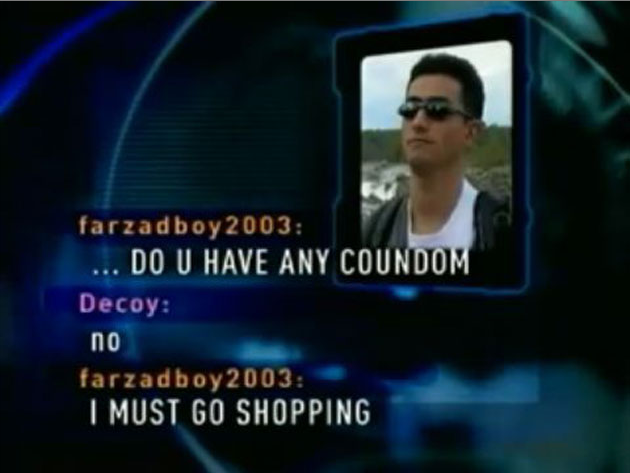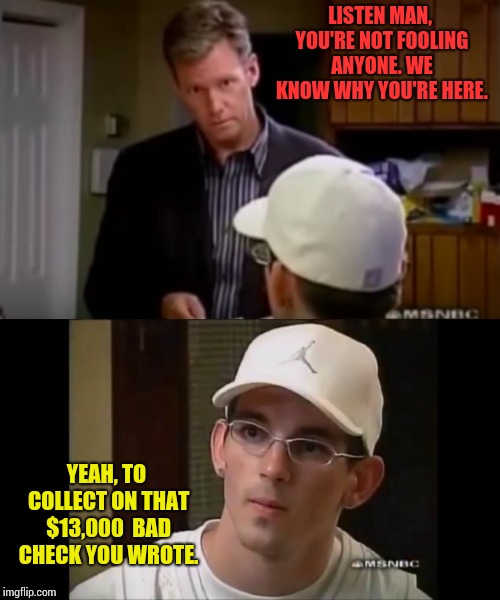
Unfortunately, law enforcement has a long history of using dubious methods to secure evidence to charge people with crimes. So you cannot simply make a blanket statement that a particular method of collecting evidence would be considered entrapment in every single situation. Each state has different laws, both from statutes and case law, regarding what is considered entrapment.

It's a complicated legal theory that requires an analysis of the specific facts in each specific instance and then an application of the appropriate case law from the state where the conviction is being pursued. The cop made sure the perp knew her age, etc. Perp: LOL Should I bring a condom? What's your address? Perp: I'm going to bring you a pretty dress and help you put it on, then I'll make you feel like a real woman.Ĭop: You mean you want to have sex with me? I'm only 14. Perp: Give me your address and I'll come over right now. Perp: Wanna meet? I'll buy you that dress and help you put it on.Ĭop: I'm not sure. Perp: I'd love to help you get into it and out of it. Perp: Anna looked so hot in that white dress. Perp: Oh yeah, I really liked the costumes. Under no circumstances does the undercover police officer (or Dateline employee) actually suggest sexual relations with the suspect. Read many transcripts of online chats with such predators. So I think, at the very least, many of these individuals have a colorable claim of entrapment.įormer prosecutor staff here. Now, it's not an easy defense to prove up in any event, but I know at least a couple of these cases have been thrown out on entrapment or entrapment-like grounds. If the "minor" keeps pressing him and he changes his mind thereafter, that looks an awful lot like entrapment, particularly under the subjective test. He's already expressed an intent not to break the law. In my mind, if a man declines to meet with a "minor" in the first instance, the cops are at risk of entrapment if they go forward.


They're downright persistent in some cases. I've seen the show a few times, and the police at times do much more than simply offer the opportunity to commit a crime. If the facts were right, I think a person could be entitled to an entrapment defense under either theory in a To Catch a Predator situation. Under the objective test, the Court looks to the conduct of the police (instead of the mental state of the defendant) and asks whether the police conduct would cause an average, law-abiding person to commit the crime. To prevail under this test, a defendant must show that he wasn't predisposed to committing the crime in the first place. Under the subjective test, a person is entrapped if the police action actually causes the person to decide to commit the crime. This isn't wrong, but it's also not the legal test.Ī defendant may enjoy the defense of entrapment under one of two theories: "subjective test" entrapment and "objective test" entrapment. A number of the responses in here rightly point out that the suspects on the show are willfully engaging in the subject behavior. I'm going to have to disagree with some of the esteemed contributors here and say that To Catch a Predator certainly can be entrapment, in certain circumstances.


 0 kommentar(er)
0 kommentar(er)
